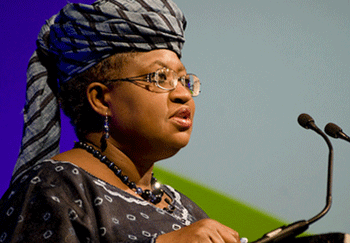Stakeholders in tax matters converged on Abuja to seek for new ways to enhance tax dispute resolutions in the country. The two-day conference, organised by the National Institute for Advanced Legal Studies for the Tax Appeal Tribunal and the Nigerian judiciary has the theme: “Deepening Stakeholder Buy-in and Fast- Tracking Tax Dispute Resolution in Nigeria’’.
Declaring the conference open, the Chief Justice of Nigeria, Justice Aloma Mukhtar, advised its participants to evolve ways to sensitise and encourage taxpayers and revenue agencies to take advantage of the tax tribunal.
Mukhtar also called on the participants to consider the stakeholder appreciation of the role of the tribubal as a critical component of the Nigerian tax system. She noted that tax was very crucial in government’s revenue generation, adding that the situation should not be different in Nigeria.
“In other climes, revenues generated from taxation usually constitute the bulk of the state’s revenue. I have no doubt that the same must also be the position in our country. It can only be so if every adult/orgnisation is made to pay tax, as properly assessed and as and when due,’’ she said. The chief justice, who was represented by Justice John Fabiyi, further appealed to the participants to reappraise double taxation in the country to evolve means of addressing it.
“The conference participants should not only consider factors by which revenue for states can be garnered in bulk. The other side of the coin should also be noted accordingly. This has to do with incidences of double taxation of individual tax payers and organisations. To my mind, this should be avoided,’’ she noted.
The Minister of Finance, Mrs Ngozi Okonjo-Iweala, who delivered the key note address, said the tribunal was an integral part of the reforms of the tax system. Okonjo-Iweala said the tribunal was not to replace the court system in the adjudication of tax disputes, but to build tax payer confidence. This, she said, was by providing an avenue for tax payers to air their grievances and obtain redress when dissatisfied with the decisions of tax authorities.
The minister, who was represented by the Permanent Secretary in the ministry of finance, Mrs Anastacia Nwobia, said the tax system had played and would continue to play a vital role in growing the Nigerian economy. “To sustain the growth, institutions must be developed to assure local and foreign investors that their rights are protected and that when conflicts arise; they will be able to effectively seek and obtain redress,’’ she said.
The minister assured tax payers that institutions would be strengthened to ensure quality service delivery.
Speaking with journalists after the event, the Director General of the institute, Prof. Adedeji Adekunle, said the primary aim of the conference was to bring legal experts together to review tax dispute resolutions. “Since this is an integral part of tax administration, we thought that an institution like the tribunal could not be existing and yet tax practitioners will not be able to exploit its use effectively. The whole idea behind this conference is to generate awareness, expose practitioners as well as regulatory bodies, including adjudicatory bodies, to the advantages of a more expedient way of settling tax disputes,’’ Adekunle said.
The Acting Chairman of the Federal Inland Revenue Service, Alhaji Kabiru Mashi, also said the tribunal was very relevant and helpful to the development of the Nigerian tax system.
“We have seen the positive contributions of the tax tribunals not only in the way disputes are resolved, but also in the manner it has affected the attitude of tax officers.
“We have now seen that our tax officers are more meticulous in the manner in which they approach disputes of tax payers.” Earlier in a welcome address, the Coordinating Chairman of the tribunal, Mr Abraham Yisa, said it was established in August 2010 and had so far received 431 appeals. Yisa said that out of the number, 212 had been disposed of while 219 were still pending.

